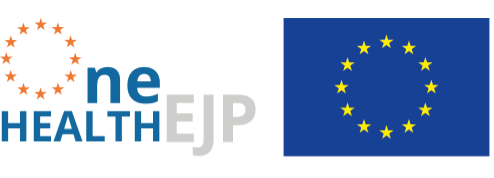Thank you to everyone who took part in the Summer School 2020. See some testimonials below and read our blog post about this event.
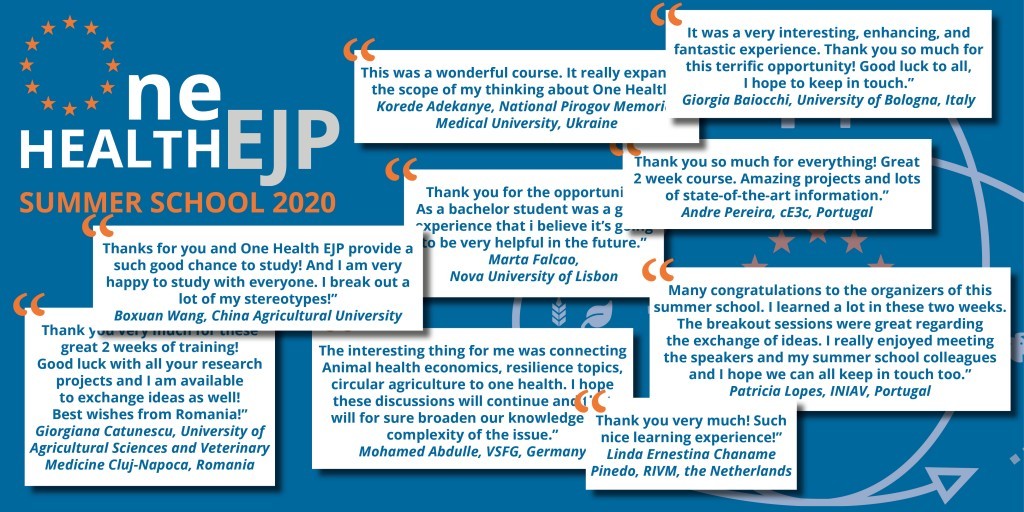
When?
17th-28th August 2020
Where?
Online event
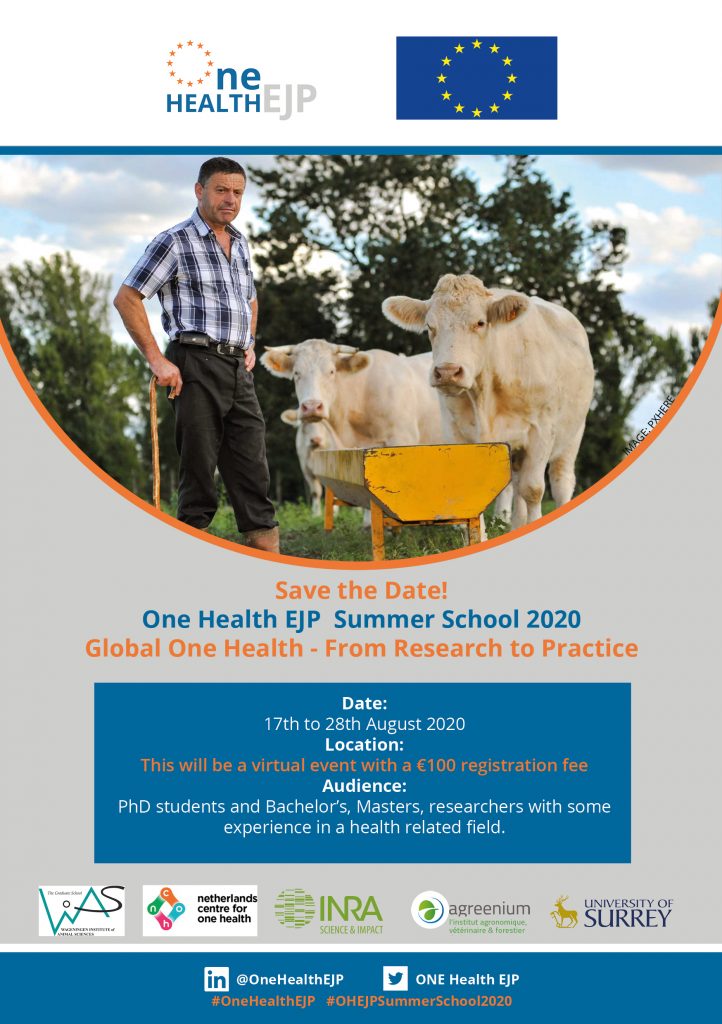
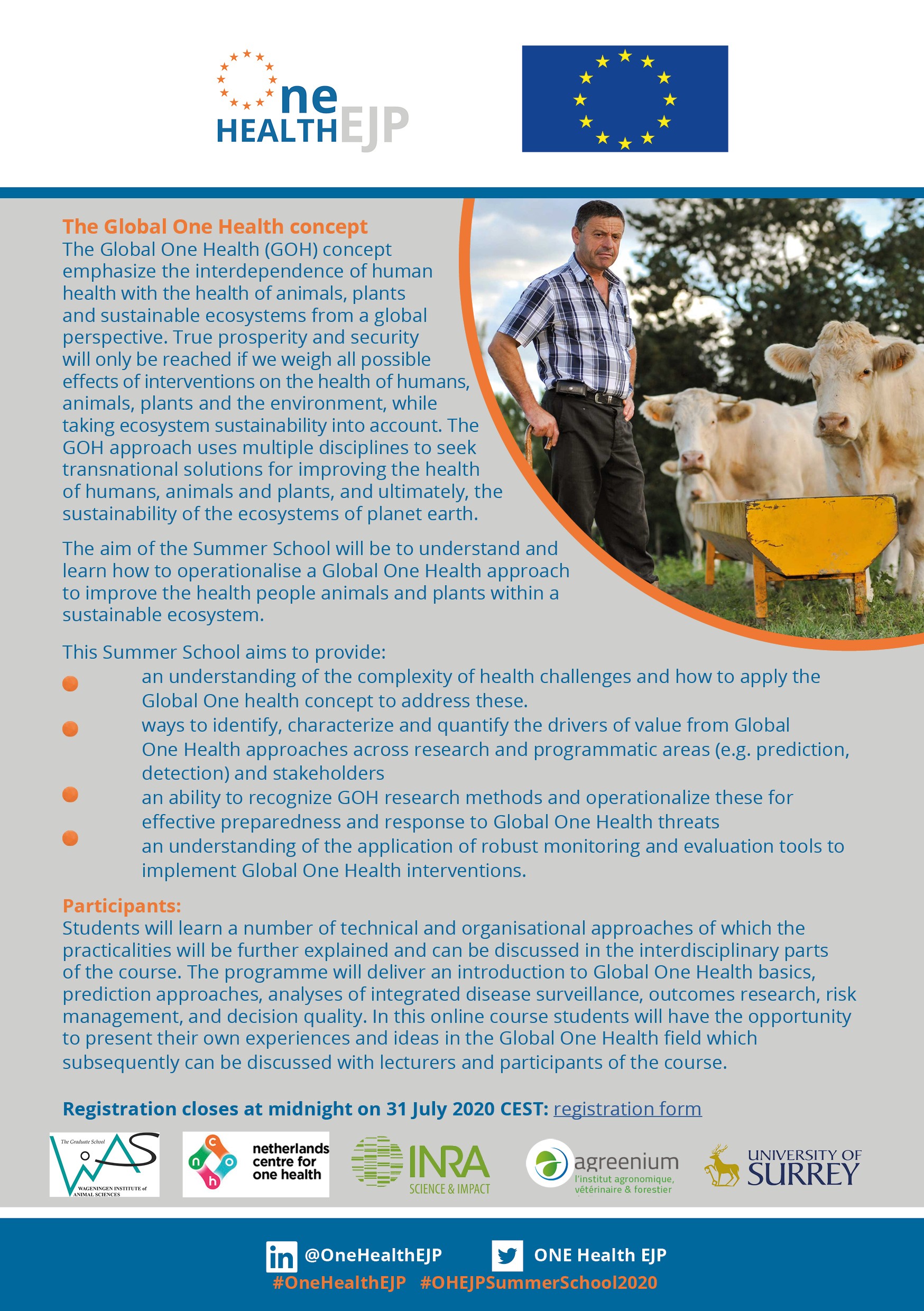
What was the aim of the One Health EJP Summer School 2020?
The One Health concept recognises that human health is tightly connected to animals and the environment. Multiple reports have highlighted the need for ‘One Health’ interventions towards the delivery of better health outcomes across each of the health domains. In other words, One Health actions must contribute value over and above the status-quo traditionally characterised by isolated or domain-specific approaches.
Our Speakers
Prof. Wim H. M. van der Poel

Prof. Wim H.M. van der Poel, DVM, PhD, is senior scientist at Wageningen Bioveterinary Research and special Professor of ‘Emerging and Zoonotic viruses’ at Wageningen University. He is the chair of the Scientific Committee of the International Research Consortium for Animal Health and member of the Project Management Board of the European Joint Program One Health (One Health EJP). He also coordinates the EPIZONE European Research Group, the network on epizootic animal diseases research. The research work of Prof. Van der Poel involves at least three main areas: New and emerging viruses, Infection and epidemiology of zoonotic viruses, including hepatitis E virus, and ‘Global One Health’.
Prof dr Henk Hogeveen
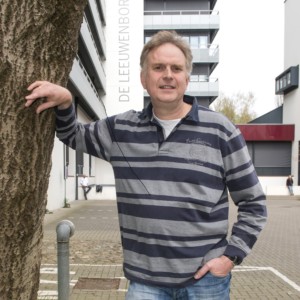
Professor Animal Health Management at the Business Economics group of Wageningen University. Being raised on a dairy farm, Henk Hogeveen graduated as MSc from Wageningen Agricultural University in 1989. He wrote MSc theses on the field of Epidemiology and Animal Health Economics. From 1989 until 1994 he worked as associated researcher at the Department of Herd Health and Reproduction of the Faculty of Veterinary Medicine of Utrecht University, where he received a PhD in the field of mastitis diagnosis. After a short employment at the former Institute for Agricultural and Environmental Engineering in Wageningen, he started as a scientific researcher in the field of herd health and management at the Applied Cattle Research Institute in Lelystad (nowadays part of the Wageningen UR Livestock Research), followed by a position as cluster manager welfare, health and milk quality at that institute. Since 2001, Henk Hogeveen is working in academia, currently as personal professor at the chair group Business Economics of Wageningen University and the Department of Farm Animal Health of the Faculty of Veterinary Medicine of Utrecht University His teaching activities are mainly directed at economics of animal health, agricultural business and veterinary business in BSc, MSc and PhD courses. His research activities are focused on the management of animal health. Within that field he has developed a special interest for the support of decisions on animal health using economics in a one health framework.
Henk Hogeveen is, amongst other memberships, member of the IDF Standing Committee Animal Health and was chairman from 2008-2012. He has more than 150 peer reviewed scientific publications in highly ranked international journals and besides that many publications in scientific proceedings and trade journals. He is a frequently asked speaker on conferences.
Mart de Jong
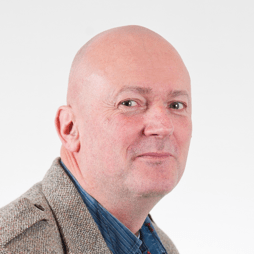
Mart de Jong is a Professor at Wageningen University & Research (WUR) in the Netherlands. Mart’s areas of expertise include population biology of infections, mathematical biology and statistical methods and he has a keen research interest in modelling and quantifying transmission of infectious agents and the effect of interventions on that. His current research interests include host heterogeneity (including multi-host systems and host genetics) and the role of the environmental phase of infectious agents during transmission. Mart teaches Modelling Biological Systems BSc Biology and Managing Infections and Diseases in Animal Populations MSc Animal Science.
Roberto La Ragione
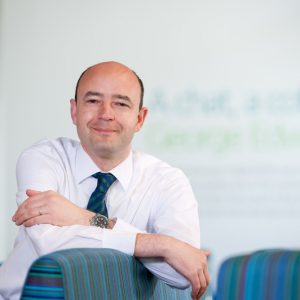
Roberto graduated in 1995 and then went on to study for a post graduate degree in veterinary microbiology at the Royal Veterinary College (University of London). In 1996 he moved to the government Veterinary Laboratories Agency to undertake a PhD on the pathogenesis of E. coli in poultry. On completion of his PhD he commenced a post-doctoral position at Royal Holloway (University of London), studying E. coli virulence factors and vaccine development.
In 2005 Roberto was appointed head of pathogenesis and control at the AHVLA and in 2010 he was appointed Professor of Veterinary Microbiology and Pathology at the University of Surrey. Roberto gained the FRCPath in 2010 and in 2012 was appointed the Associate Dean for Veterinary Strategy in the new School of Veterinary Medicine at the University of Surrey. He is currently the Head of Pathology and Infectious Diseases, Director of the Veterinary Pathology Centre and Deputy Head of the School of Veterinary Medicine at the University of Surrey. Roberto is the current Chair of the Royal College of Pathologists Veterinary Pathology Specialty Advisory Committee, Chair of the humanimal Trust, member of the APHA science advisory board and a member of the Houghton Trust. Roberto is the past president of the Med-Vet-Net Association and the Veterinary Research Club. Roberto is an Associate member of the European College of Veterinary Microbiology (AECVM).
Roberto’s research has focused largely on the analysis of colonisation, shedding and transmission of E. coli, Campylobacter, Salmonella and other foodborne pathogens by all farmed animal species and he has led a number of commercial, BBSRC, EPSRC, MRC, Defra, Innovate and EU projects. Roberto has published over 150 peer reviewed publications in the area of host-microbe interaction with a particular emphasis on foodborne pathogens and endemic diseases of poultry. His current research focuses on AMR transmission and the pathogenesis of food-borne pathogens with a particular interest in the development of rapid diagnostics and intervention strategies, including vaccination, pre and probiotics for the control of bacterial pathogens in animals.
Andrew Lawson
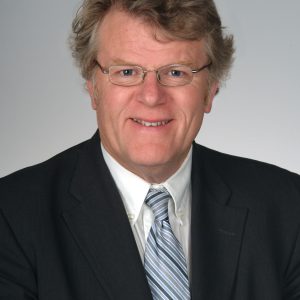
Dr Lawson is Professor of Biostatistics in the Division of Biostatistics and Bioinformatics, Department of Public Health Sciences, College of Medicine, MUSC and is an MUSC Distinguished Professor Emeritus.
He has over 175 journal papers on the subject of spatial epidemiology, spatial statistics and related areas. In addition to a number of book chapters, he is the author of 10 books in areas related to spatial epidemiology and health surveillance. The most recent of these is Lawson, A.B. et al (eds) (2016) Handbook of Spatial Epidemiology. CRC Press, New York, and in 2018 a 3rd edition of Bayesian Disease Mapping; hierarchical modeling in spatial epidemiology CRC Press. As well as associate editorships on a variety of journals, he is an advisor in disease mapping and risk assessment for the World Health Organization (WHO). He is founding editor of the Elsevier journal Spatial and Spatio-temporal Epidemiology. Dr Lawson has delivered many short courses in different locations over the last 15 years on Bayesian Disease Mapping with OpenBUGS and INLA, and Nimble, Spatial Epidemiology and disease Clustering and Surveillance.
Web site: https://education.musc.edu/MUSCApps/facultydirectory/Lawson-Andrew
Hein Imberechts
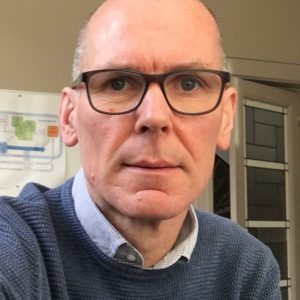
Hein Imberechts holds a degree in Veterinary Medicine and in Molecular Biology and obtained a PhD in 1992. His main topics of research were E. coli infections in pigs, Salmonella and antimicrobial resistance.
He was the Head of Department / Operational Director of bacteriology at the Belgium reference laboratory for infectious animal diseases: CODA-CERVA, for 14 years. In February 2015 Hein became the scientific coordinator and later Scientific Support Advisor at the Strategy and External Positioning unit at Sciensano.
In December 2012 he was assigned Biosafety officer and in 2018, Hein became a member of the Belgian Biosafety Professionals’s Steering Team. Hein is also a member of the working group of foodborne infections at Sciensano and was also a member of the scientific committee of the Federal Agency for the Safety of the Food Chain in Brussels for 15 years, and president of Veterinary Working Group of the Belgian Antibiotic Policy Coordination Committee (BAPCOC) for 2 years. In December 2019, Hein was appointed member of the Scientific Council of ANSES in Paris.
Hein represents Sciensano in the MedVetNet Association and became Vice-President of the association in October 2018. In January 2018 Hein was appointed Scientific Coordinator of the One Health European Joint Programme with ANSES and also work package leader on Joint Research Projects.
Victor Del Rio Vilas
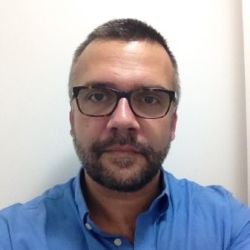
Victor Del Rio Vilas (DVM, MBA, MSc (Epi), PhD) is currently at the World Health Organization (WHO), South East Asia Regional Office in New Delhi, India, where he coordinates the Global Outbreak Alert and Response Network (GOARN) in the region.
He was previously at the Dept of Epidemiology, School of Veterinary Medicine, University of Surrey (UK), and at the Centre on Global Health Security at Chatham House, London. Until January 2018 he worked at the World Health Organization (WHO-Geneva) on the development of WHO’s epidemic vulnerability evaluation framework.
Until November 2016, Dr Del Rio was a consultant with the Pan American Health Organization (PAHO/WHO), based in Rio de Janeiro (Brazil) with regional responsibilities. In that capacity, Dr Del Rio advised Ministries/Departments of Health across the region on epidemiology, surveillance and control measures for a number of diseases such as rabies, leishmaniasis, yellow fever and on zoonoses programmatic issues. He also contributed to WHO’s global response to the Ebola Virus Disease outbreak in Liberia in 2015; previously worked in Uzbekistan implementing the Biological Threat Reduction Program (Defence Threat Reduction Agency, US DoD), and as veterinary advisor and epidemiologist for UK´s Department for Environment, Food and Rural Affairs (Defra) and the Veterinary Laboratories Agency.
Henk Jan Ormel
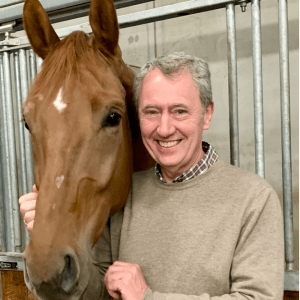
Senior Policy Advisor to the Chief Veterinary Officer, FAO
Henk Jan Ormel graduated from The Faculty of Veterinary Medicine of the State University of Utrecht in 1983. He became co-owner of a mixed practice in the southern part of the Netherlands and practised as a general practitioner specialized in dairy cows, pigs and surgery of companion animals. In 1992 he moved to the eastern part of the Netherlands and became co-owner of a private practice. From 1995-2002 he was, besides his work as veterinary practitioner, a Board Member of AUV, a Dutch Veterinary Medicines Corporation and from 1999-2002 he was Chairman of the Board.
In 2002 Henk Jan Ormel was elected to the Dutch Parliament out of anger against the non-vaccination policy of the EU during the outbreaks of foot-and-mouth disease of the time. In Parliament he was spokesman for his political party (CDA: Christian Democratic Party) on animal health and animal welfare, but also on human medical-ethical issues, biotechnology, European and Foreign affairs. From 2007 through 2010 he was the Chairman of the Foreign Affairs Committee of the Second Chamber of the Dutch Parliament. Upon resigning from Parliament in September 2012, Her Majesty the Queen bestowed upon him the Knight in the Order of Oranje Nassau. October 2012 to September 2019 he was seconded by the Dutch Ministry of Agriculture to the Food and Agriculture Organization of the United Nations (FAO), where he served in the Animal Health Service of the Agricultural Department (AGAH) as Senior Policy Advisor to the Chief Veterinary Officer, one of the coordinators of FAO’s working group on Anti-Microbial Resistance (AMR) and secretary on behalf of FAO at the Tripartite One-Health cooperation between WHO, OIE and FAO. After finalizing his secondment, FAO contracted him as senior consultant to proceed as Senior Inter-Agency Coordinator.
Besides the above mentioned he represents the Animal Health Service of FAO in the Global Agenda for Sustainable Livestock (GASL) and was one of the initiators of Livestock Anti-Microbial Partnership (LAMP), one of the Action Networks of GASL, facilitating a multi-stakeholder approach of Anti-Microbial Resistance (AMR). He also coordinates FAO activities in the Global Health Security Agenda and the Joint External Evaluations(JEE) of the WHO International Health Regulations. He is also Global Coordinator of the Global Framework for the progressive control of Trans-boundary Animal Diseases (GF-TADs).
Ingrid van Dixhoorn
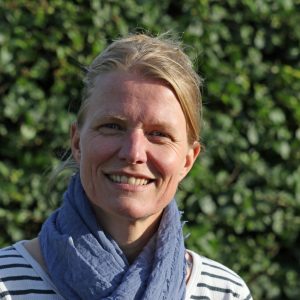
Ingrid van Dixhoorn, DVM is a senior scientist at Wageningen Livestock Research. Her research area involves the application of resilience thinking to livestock production systems. She describes resilience at the level of individual animals as the ability of an animal to adapt to changing environmental conditions or stressful challenges with minimum loss of function. This research will lead to the development of indicators of resilience and possible ways to influence and manage resilience.
Ines Kuniko Mogami Gonzalez
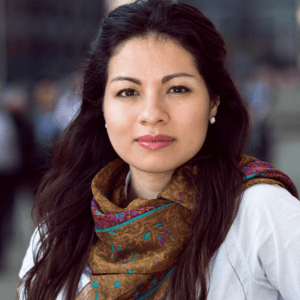
Ines Kuniko Mogami Gonzalez holds a degree in International Business Management, Political Science (specialization in International Relations) and Global Health. For a few years, she worked in the banking department for multinational companies. During this period she was involved in long term sustainable finance projects and wrote reports on the effects on the market of socio-economic and political events.
She was also involved in an advocacy campaign that fights against poverty and preventible diseases for the international advocacy organization ONE during the elections of the European Parliament in 2014.
After being a caregiver of her sick parents and the desire to do something for an healthy society, she decided to change career and do a research master in Global Health. In 2018, she worked on a project to empower patients and healthcare professionals, but soon got interested in One Health. This was mainly because of its transdisciplinary approach and how politics, the economy, human, animal and environmental health are interconnected. Therefore, she did an internship at Wageningen Bioveterinary Research Institution for the project COHESIVE.
Currently, she is working for the National Institute for Public Health and the Environment of the Netherlands. She gives advice on how to co-create guidelines with stakeholders. Furthermore, she supports European member states in the implementation of a structure to prevent and control zoonoses. She is currently researching how professionals can get political commitment, but also looks at themes such as trust and collaboration, and systems thinking.
Sander Koenraadt
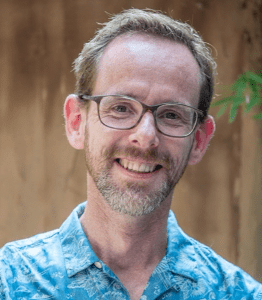
Dr. Sander Koenraadt obtained his PhD in the field of malaria ecology and environmental change at Wageningen University. After spending several years working on the ecology of dengue and West Nile virus in Thailand and the US, respectively, he returned to the Netherlands, where he is currently working as an Associate Professor at the Laboratory of Entomology of Wageningen University.
At the Laboratory of Entomology, Dr. Koenraadt has established the One Health Entomology group. The ultimate aim of ‘One Health Entomology’ is to be able to quickly respond to the threat of vector-borne diseases with means that are affordable, safe for human and animal use and, most notably, sustainable in the context of our changing environment. This requires an innovative approach that calls for integrated research at all relevant, biological scales, and which includes both fundamental and applied research. The three main research themes that are part of the team’s approach are: (1) fundamental aspects of arthropod-pathogen interactions, (2) ecological aspects of vectors and their control and (3) development of novel biological control tools and intervention approaches.
Dr. Koenraadt collaborates with several groups within Wageningen University (Virology, Knowledge Technology & Innovation, Strategic Communication, and Environmental Systems Analysis), as well as with academia outside of Wageningen (e.g. University Medical Center, Amsterdam and Radboud University, Nijmegen). Also government (Dutch Institute for Public Health and the Environment; Center for Monitoring of Vectors) and non-government organisations (e.g. Médécins Sans Frontiers) are part of research consortia within the team. Internationally, he is involved in several European projects (ZIKAlliance, Infravec2) and carries out various projects in Africa (Rwanda, Malawi) and South-America.
Dan Horton

Dr Horton is a veterinarian with over 13 year’s experience in research on zoonotic viral diseases. Prior to joining the University of Surrey in 2014 he worked at the Rabies Reference Laboratory at the UK Government’s Animal and Plant Health Agency where he led research and surveillance projects on rabies and other zoonoses, was an advisor to Defra, Public Health England and the OIE and led multiple overseas assistance projects on rabies including in Africa and the Middle East. He has over 50 peer reviewed papers in the field, currently supervises six PhD students and teaches at undergraduate and postgraduate level. He is Research Director for the School of Veterinary Medicine and a member of the Senior Management Team.
Research in his group is focused on reducing the animal and human health burden caused by diseases that cross species barriers. Approaches include fundamental work on the evolution of viral pathogens, through to the applied aspects of control policy in national and international rabies projects. An area of particular importance is the wildlife-livestock-human interface and its role in the emergence of pathogens, recently supported by an Academy of Medical Sciences Springboard award. Previous work includes characterising novel BSL3 pathogens in vitro and in-vivo, as well as planning, undertaking and interpreting data from surveillance programs for zoonotic pathogens in wildlife and domestic animals. An additional and allied area of interest is building veterinary and laboratory capacity internationally with benefits for global biosecurity.
Gyanendra Gongal
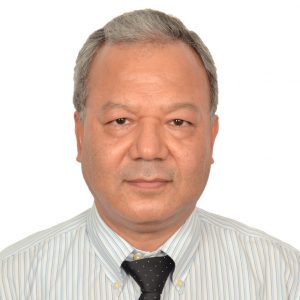
Gyanendra Gongal (DVM, MSc Epid) is working as a Regional Advisor in the World Health Organization (WHO) Regional Office for South East Asia. He received Doctor of Veterinary Medicine from Moscow Veterinary Academy and did MSc on Epidemiology from the Freie University of Berlin. He worked in various capacities under Ministry of Health as well as Ministry of Agriculture in Nepal for 17 years. He started international career as a FAO/WHO consultant in Maldives and Sri Lanka in 2005. He joined WHO in 2006 and he has been one of the active members of the regional tripartite coordination group (FAO-OIE-WHO) in the Asia-Pacific region to advocate operationalization of ‘One Health’ in tripartite platforms since 2010 which has helped to promote better understanding of intersectoral collaboration for addressing rabies, emerging zoonoses, food safety and antimicrobial resistance at the human-animal interface. He received young scientist award from Nepal Academy for Science and Technology in 1999 and WHO Reward for Excellence in 2016.
He has an interest on zoonoses, food safety, One Health, international health and epidemiology. He has been involved in developing regional strategy, guidelines and policy papers for prevention and control of emerging infectious diseases including zoonoses and food safety. He has attended more than 260 national and international meetings, conferences and workshops and published more than 58 technical papers on transboundary animal diseases, zoonoses, food safety and One Health. He is a peer reviewer for 16 international journals.
Kees Veldman
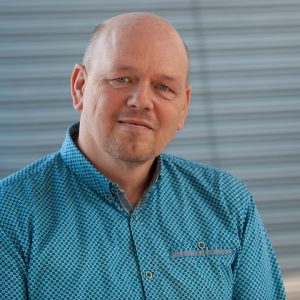
Kees Veldman (PhD) is working as a senior scientist at Wageningen Bioveterinary Research (WBVR). He is head of the National Reference Laboratory for antimicrobial resistance and the leading editor of the annual report on Monitoring of Antimicrobial Resistance and Antibiotic Usage in Animals in the Netherlands (MARAN).
Currently Kees is coordinating a One Health European Joint Programme project called IMPART. As member of the steering committee of VetCAST (veterinary subcommittee of EUCAST) he is involved in all aspects of antimicrobial susceptibility testing of bacterial pathogens of animal origin and animal bacteria with zoonotic potential.
Lucie Vermeulen
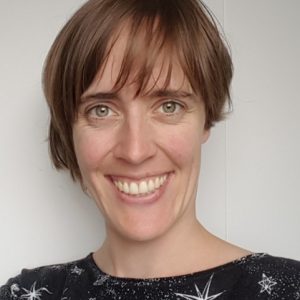
Lucie Vermeulen is researcher at the Centre for Zoonoses and Environmental Microbiology at the National Institute for Public Health and the Environment (RIVM) of the Netherlands. Her area of expertise is modelling of the spread, risk and burden of infectious diseases in the environment, via water and air. She has worked on Legionella, SARS-CoV-2, Cryptosporidium, and food- and manure-borne pathogens.
Lucie is involved in the WHO Collaborating Centre for Risk Assessment of Pathogens in Food and Water. Previous work experience includes work at the Health Council of the Netherlands (Gezondheidsraad), at Wageningen Food Safety Research (RIKILT), and an internship at the United Nations University for Water, Environment and Health (UNU-INWEH) in Canada. Lucie has a PhD and MSc from the Environmental Systems Analysis group at Wageningen University, and a BSc from University College Utrecht.
Sophia Dollmann
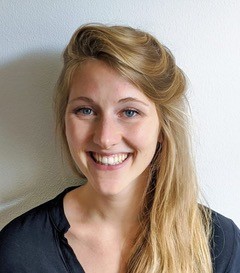
Sophia Dollmann has just recently begun as a researcher at the Centre for Zoonoses and Environmental Microbiology at the Netherland’s National Institute for Public Health and the Environment (RIVM). She is involved in projects related to pathogens in manure, their environmental transmission and possible risks for public health.
Her interests lie especially in the interlinkages of public health and environment as well as their governance, which led her to the master’s One Health at Utrecht University, where she was the first to graduate. Before, Sophia studied European Public Health at Maastricht University. Her internships included research at the German Public Health Institute (RKI) and science communication tasks on the manure policy at the Dutch Ministry of Agriculture, Nature and Food Quality (LNV).
Hendrik-Jan Roest
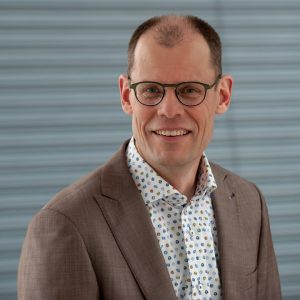
Hendrik-Jan Roest graduated from Utrecht University Veterinary School, the Netherlands, in 1996 and worked for six-and-a-half years as a veterinary practitioner. In 2003, he switched to Wageningen Bioveterinary Research (WBVR) in Lelystad to specialise in veterinary microbiology. Between 2005 and 2012, he was head of the Laboratory for General Bacteriology. In 2006, he became OIE expert on Contagious Equine Metritis (CEM).
Hendrik-Jan is the initiator of Q fever research at WBVR and isolated Coxiella burnetii for the first time in the Netherlands. This led to his PhD thesis entitled “Coxiella burnetii in pregnant goats” in 2013. He was a member of the Dutch and EU Q fever expert panels. He also initiated research on Chlamydia, tularemia and Brucella spp. in Dutch wildlife and involved in many research projects on intracellular bacteria and One Health. Between 2012 and 2019, he was the head of several departments at WBVR, as well as member of the Management Team of WBVR. He was quartermaster of the Netherlands Centre for One Health (NCOH) and NCOH and Wageningen Research representative and project management team member of One Health EJP, a Horizon 2020 project.
Since April 2019 he has been deputy Chief Veterinary Officer of the Netherlands at the Ministry of Agriculture, Nature and Food Quality.
Joke van der Giessen
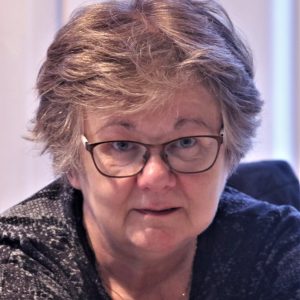
Specialist veterinary microbiology and Diplomate European College Veterinary Parasitology since 2005. Senior scientist and head of the national reference laboratory for foodborne parasites at the National Institute of Public Health and the Environment (RIVM).
Main research area: wildlife and foodborne zoonoses & zoonotic parasites. One Health. Chaired the WHO/FAO global ranking of foodborne parasites in 2012. Coordinator of EFSA funded project on the presence of Toxoplasma gondii in meat (GP/EFSA/BIOHAZ/2013/01); WG1 leader of COST action FA1408 Food Borne Parasites in Europe. Co-coordinator of OHEJP project TOXOSOURCES and 3 other OH-EJP projects. Past-president of the International Commission on Trichinellosis.
Miriam Maas
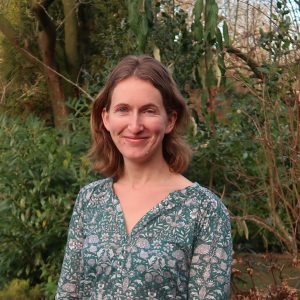
Researcher at the Centre for Infectious Disease Control of the National Institute for Public Health and the Environment (RIVM)
The research interests of Miriam Maas include wildlife zoonoses and public health. More specific, in recent years she has worked on rodent-borne zoonoses such as leptospirosis and orthohantavirus, but also lead projects on Echinococcus multilocularis in red foxes and raccoon dogs. One of her current projects involves the risk of Baylisascaris procyonis in raccoons, an invasive species. She is the daily supervisor of the OHEJP PhD project DESIRE, concerning rats and rat-borne zoonoses in urban environments.
Marcel Verweij
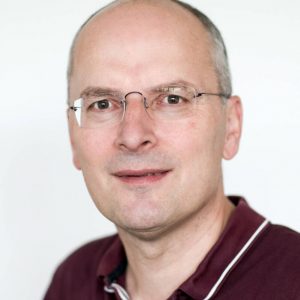
I am professor of philosophy at Wageningen University. Our group works on practical philosophy in relation to health, food, nature, animals, environment. My own work focuses on ethics of public health.
Before I came to Wageningen I had worked as philosopher and ethicist at Utrecht University, the University of Amsterdam, the University Medical Centre Nijmegen, and as visiting scholar at the universities of Stellenbosch, Keele, and the London School of Hygiene and Tropical Medicine. In Utrecht I served as coordinator of the international Master program in Applied Ethics; throughout my career I have taught ethics for a variety of student audiences: philosophy, medicine, dentistry, pharmacy, food sciences; but also professionals (nursing, medicine, public health, occupational health).
My research and teaching cover a very broad area in applied philosophy and ethics, including animal ethics and business ethics, but the primary focus is public health. Together with Angus Dawson (University of Sydney) I initiated public health ethics as a new area of studies in moral philosophy. We are founding Editors-in-Chief of Public Health Ethics, a journal published by Oxford University Press. The journal is now the centre of a flourishing interdisciplinary scientific field.
My philosophical approach to practical societal issues is also the key in various consultative roles, for example for the World Health Organization. Since 2005, I have been member of the Health Council of the Netherlands and contributed to more than 20 advisory reports for the Minister of Health, including reports on collective vaccination, screening, preconception counselling, special policies for high-risk groups, and expert reports on Q-Fever and Mexican Flu.
Nithima Sumpradit
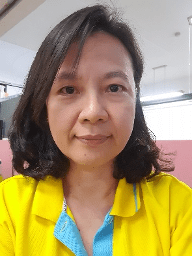
Dr Nithima Sumpradit is a senior pharmacist and the Head of Research and Development Unit, Medicines Regulation Division, the Food and Drug Administration, Ministry of Public Health, Thailand. She serves as a national coordinator for Thailand’s National Strategic Plan on AMR 2017-2021, in a secretary team for the National Policy Committee on AMR and also as the programme manager of the Royal Thai Government and World Health Organization Country Cooperation Programme on AMR 2017-2021.
Her expertise is in health programme planning and evaluation, medicine use behaviour and antimicrobial resistance. She received her Bachelor’s Degree in Pharmaceutical Sciences, Mahidol University, Thailand. Her Master’s Degree is in Health Promotion and Behaviour from the University of Georgia, and her PhD is in Pharmacy Social and Administrative Sciences at the University of Michigan.
Annemarie Rebel
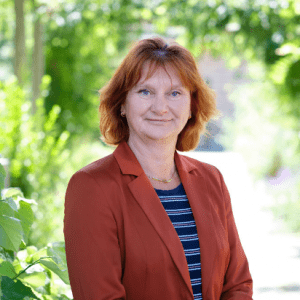
Prof. Dr. Annemarie (JMJ) Rebel is head of the Animal Health and Welfare Department within Wageningen Livestock Research, part of Wageningen UR. She gained her doctorate from Erasmus University Rotterdam for the human medicine subject ‘Recurrence rate of bladder cancer’. She subsequently did research at the Johns Hopkins University in Baltimore on metastasis of prostate cancer. Following a switch to research in livestock she started at Infection Biology within the Central Veterinary Institute. At this moment she is responsible for research into the interactions between animals and the environment, such as nutrition, pathogens, microbiome, stress and housing. Her expertise is used with the aim to improve animal health, resilience and welfare. Moreover, her expertise is on host pathogen interaction in different animals like chickens, pigs and goats with special emphasis on immunity and infection susceptibility and interactions with the microbiome. She participates in large EU project like SAPHIR (vaccine responses in animals) and public private partnerships. In the one health domain she is involved by the Netherlands centre for One Health initiative.
Annemarie Rebel is:
- Professor as special appointed of the discipline Healthy and Resilient livestock, at the chair group Adaptation Physiology, department of animal sciences of Wageningen University and Research
- Scientific director smart and healthy farming at Netherlands centre for One Health (NCOH).
Ron Bergevoet
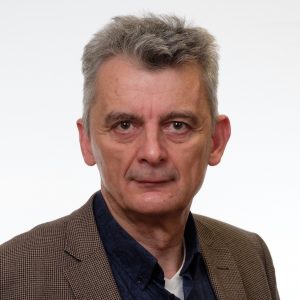
Ron Bergevoet (DVM, PhD) is senior researcher (veterinarian and economist) from the Wageningen Economic research with more than 25 years professional experience. He is one of the key researchers working for Wageningen Economic research, and participates in various national and international multi-disciplinary studies. He was co-author of the World Bank study “People, Pathogens and Our Planet; Volume 1: Towards a One Health Approach for Controlling Zoonotic Diseases” (2010). As, expert or team leader he has been active in many projects for the EU and other donors. His main research interests are the socio-economic impact of zoonosis and emerging animal diseases both in high-income as in low and medium income countries.
Lapo Mughini-Gras
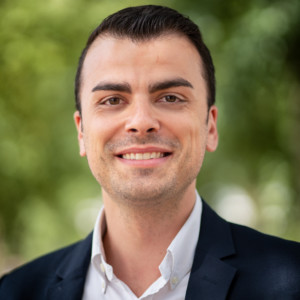
Lapo Mughini-Gras (DVM PhD) is senior epidemiologist at the Dutch National Institute for Public Health and the Environment (RIVM) and associate professor of veterinary public health at Utrecht University. His main research interests are the epidemiology of foodborne and zoonotic infections, as well as antimicrobial resistance, at the human-animal-environment interface. He is particularly interested in developing models to understand the sources, transmission routes and (health and socioeconomic) consequences of these infections. After graduating in veterinary medicine from Bologna University in 2008, he worked for one year as pest manager at the Bologna City Council and as a part-time resident veterinarian at a local small animal clinic. This was followed by a PhD (2010-2013) in quantitative epidemiology at the Italian National Institute of Health (ISS). In 2015, he completed his 3-year veterinary specialty in animal health and production at Perugia University. He moved to the Netherlands in 2013 to join the RIVM and Utrecht University. Besides research, he is engaged in different teaching activities to under- and postgraduate students. He is bilingual Italian and Spanish, and fluent in English, Dutch and French. Since 2010, he has (co)authored around 100 papers in peer-reviewed scientific journals and books.
Evelien de Olde
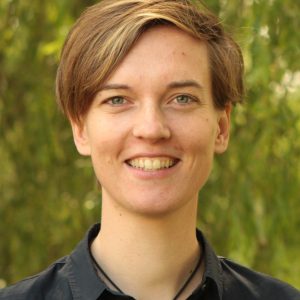
Evelien de Olde works as a researcher at the Animal Production Systems group, Wageningen University & Research. Her research interest include sustainability assessments in agriculture, circular food system and certification systems of sustainable food products. In 2017, she completed her PhD entitled ‘Sustainable development of agriculture: contribution of farm-level assessment tools’ at Aarhus University (Denmark) and Wageningen University (the Netherlands)
Ana Maria de Roda Husman
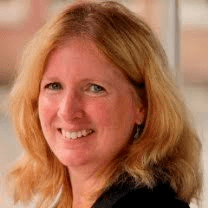
Prof. dr. Ana Maria de Roda Husman PhD has over 20 years of experience as a principal investigator in molecular virology and water microbiology. She advises policy makers at the Dutch government, the European committee, WHO, ECDC and EFSA on the possible infectious disease risks from exposure to human pathogens in water, and possible intervention measures. She has published over 100 peer-reviewed papers in scientific journals. She directs infectious disease research and policy advice at RIVM. She holds the chair of Global changes and environmentally transmitted infectious diseases at the Institute for Risk Assessment Sciences of Utrecht University. She has served as an expert for WHO since 2004 for the revision of the Guidelines for Drinking Water Quality on water microbiology, water quality and reuse, risk assessment, public health, antimicrobial resistance. Ana Maria is the director of the WHO Collaborating Center for Risk Assessment of Pathogens in Food and Water.
